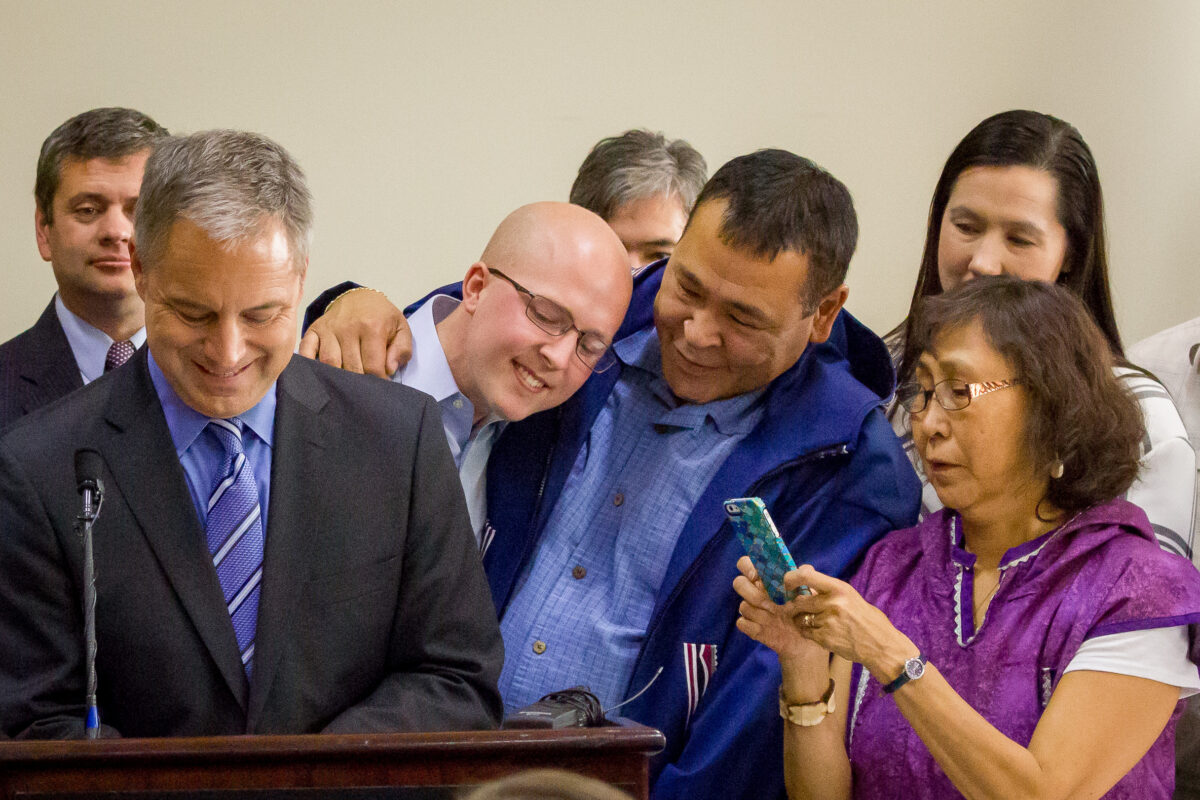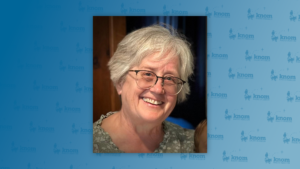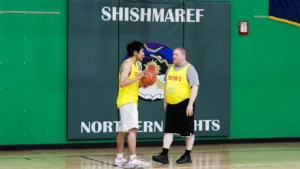Protecting, reclaiming and revitalizing nearly two dozen Alaska Native languages is the aim of the Alaska Native Language Preservation and Advisory Council. A bill in the Alaska Legislature is looking to assist the council in that effort.
House Bill 26, authored by Juneau Rep. Andi Story, is seeking to rename the body as the Council for Alaska Native Languages, and would also increase the number of voting seats on the council from five to seven.
The bill was heard in the House Tribal Affairs Special Committee on Wednesday, March 8.
All members are appointed by the governor and the council is made up of language experts from diverse regions of the state.
X’unei Lance Twitchell is the chair of the council and a professor of Alaska Native Languages at the University of Alaska Southeast in Juneau. He testified at the Alaska State Capitol on Wednesday afternoon.
“Alaska is home to 23 known indigenous languages, and according to recent research by the Alaska Native Language Preservation and Advisory Council, none of them are safe,” Twitchell said.
Twitchell spoke to two priorities of the council’s work.
“Revitalization is also what we do, which involves in my mind two things; one, protecting the speakers that you have while creating new ones, and two, ensuring that our languages are languages of power and use. Reclamation is also what we do, which is making sure that our languages are used in a wide variety of social and physical spaces,” Twitchell said.
Twitchell also spoke to the level of destruction that was caused culturally, spiritually and emotionally by the suppression of Native languages.
“Because of the act of suppression and genocide of our languages, we face an unnecessary and often silent death march,” he said. “I’m encouraging this panel to support this bill so we, the council, can have a name more fitting for the diverse range of work that we are doing. We also need additional representation on our council. Twenty-three languages require more than five voting members.”
Testimony on overcoming traumas also came from Yaayuk Bernadette Alvanna-Stimpfle, the vice-chair of the council and director of the Kawerak Eskimo Heritage Program.
“To break this trauma, indigenous people have to work hard on cultural wellness in arts and ceremonies, to revitalize what was lost,” Alvanna-Stimpfle said, adding that she has experienced seeing the cultural growth of Indigenous youth that are exposed to their language.
“When young people come in to search for information on traditional dancing or listen to their grandparents or great grandparents that were interviewed in Inupiaq, Yupik or St. Lawrence Yupik, they literally find themselves; their cultural activities are suddenly explained when they start learning the language,” she said.
Resilience is something that has kept the languages of Alaska alive no matter what through the course of time, according to Alvanna-Stimpfle.
“We are reclaiming who we are and where we come from,” she said. “We come from thousands of years of not only surviving harsh environments, but also thriving in that very environment … our language comes from our land, sea, and resources in the air.”
As of 2022, according to a council report, Native language programs existed in 10 Bering Strait regional communities at the elementary through high school level and beyond.
Public testimony will be taken on the bill during the committee’s March 13 hearing. Those wishing to testify can reach out to the Nome Legislative Information Office at (907) 443-5555.
Image at top: Representative Jonathan Kreiss-Tomkins of Sitka, Nome’s Bernadette Yaayuk Alvanna-Stimpfle, and others look on as Governor Sean Parnell signs a bill into law making 20 Alaska Native languages into official state languages. Photo by Matthew F. Smith, KNOM (2014).





